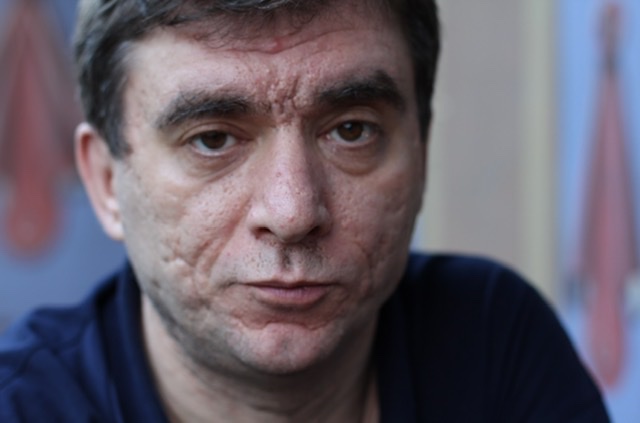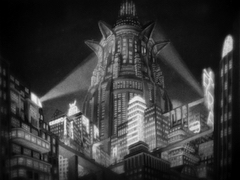Foundation de l’Hermitage, Lausanne has opened an exhibition “Arts et Cinema” (04.09.2020 – 03.01.2021). Writer, screenwriter, author of TV series Pavel Gelman talks about Charlie Chaplin and Sergei Eisenstein in an interview with artdecision.eu’s Irina Vernichenko.
Irina Vernichenko: Episodes from Sergey Eisenstein’s film “The Battleship Potemkin ” is being broadcasted in the “Le dynamisme révolutionnaire 1925-1935” section of the exhibition at Fondation d’Hermitage. What was Eisenstein’s influence on the literary and ideological figures of his time?
Pavel Gelman: I was a student of the MHAT studio- school. There I was taught that if you want to understand a piece of art, then you need to look at what was happening nearby..
In the same period when Eisenstein was making his “Battleship Potemkin”, there were two people working in literature, who in my opinion were the two most influential figures of Russian literature in the 1920s. Yury Tynyanov and Mikhail Bulgakov.
In 1928, Tynyanov ‘s brilliant novel “The Death of Vazir-Mukhtar”, which is about the last year of Griboedov’s life and about his death, was released. The novel is a portrait of a person who outlived his own time period, about a person who lives in a different time. If Eisenstein played with the energy of the hatred between the classes then Tynyanov took advantage of the energy of love given to a separate person, the energy of interest to a person, there is not a trace of hatred to be found in his novels. Tynyanov’s novel is built like a movie script, each chapter is very visually fashioned. It is likely that the influence of Eisenstein’s films is present here..
The texts of Mikhail Bulgakov are filled with bitterness and love.
Of course, literature is a more solitary and independent field than cinema. Of course..
There were two great cinematographers in the world in that time period: Eisenstein and Chaplin.
We can learn the art of cinema from Eisenstein, however, he can not teach us the art of life.. Chaplin with his humanism can become our teacher of life even today.
Irina: What is your understanding of Chaplin’s humanism?
P.G.: Any humanism means that your position becomes that of a human’s lawyer, not of a prosecutor.
Chaplin emerged in the United States. And America is a country which created the cult of success and the cult of a successful person.
Chaplin invented Charlie’s image.This person always feels worse than you.. He will never be successful. But he won’t become embittered, he will not lose his strength, won’t fall into despair. Charlie feels uncomfortable in that world. Even his costume does not fit him that well – a beautiful image. A person who can not fit into the world. The world is too harsh, too mechanical.
Chaplin does not fault his hero for his lack of entrepreneurship, lack of success, lack of status..
He just loves him the way that he is. And we love Chaplin along with his creator. This is what humanism essentially is.
Irina: Your book ” Rules of the Philosopher Iakov”, which now became available in print in several languages, can it now be used as a movie script?
P.G.: We had a plan with film director Vladimir Mirzoev to make a small tv-series based on the book. Each episode would have a five minute duration. I even started to try to turn some of the stories about Iakov into small episodes. But I am not sure that it came out good..
Something disappears.. Some of the book’s charm disappears.
In some sense the philosopher Iakov – also emerged from Charlie. He is also not very suited to the world, he always tries to make some money, to settle somewhere somehow.. But in his soul – he is a poet. Like Charlie. Iakov is a clown-philosopher. But sometimes he can also be a poet..
Probably everything would be up to the actor. If we had an actor which would fit Iakov’s image with an accuracy of one hundred percent, then everything might have worked out. He would not only need to fit his image perfectly, he would also need to add to complement Iakov with his individuality..


